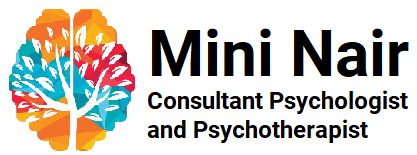See a Psychologist? Why?!

Clinical practice in psychological counseling and psychotherapy is the need of the times. As the onslaught of everyday life stressors builds up, families get smaller, society gets busier, personal relationships get restricted to online interactions; the need for a neutral, trustworthy, trained professional to help with thoughts, behaviors, emotions and situations gets augmented.
In normal population: A psychologist is of paramount importance in case of relationship issues, behavioral aberrations, crisis management, death and bereavement, stage-of-life concerns e.g. exam fear, bullying, academic issues, pre-marital, marital adjustments, pregnancy, postpartum, parenting, adolescence, peer pressure, empty nest syndrome, work stress, etc.
In psychiatric patients: Besides these, counseling, psychometric evaluation and psychotherapy can be used in conjunction with pharmacotherapy in case of psychiatric patients.
The role of a psychological counselor or therapist becomes valuable in the following scenarios:
- Substance related disorders (alcohol, nicotine, opium, etc.)
- In Psychotic disorders (schizophrenia….to engage with non-delusional family members)
- Delusional disorder
- Mood disorders (Depressive, Bipolar, Dysthymic, Cyclothymic)
- Anxiety Disorders (Generalized Anxiety Disorder, Phobias, Panic Disorder, Obsessive Compulsive Disorder, Posttraumatic Stress Disorder, Acute Stress Disorder)
- Somatoform Disorders(Hypochondriasis, Conversion, Somatization)
- Eating Disorders (Anorexia, Bulimia, Obesity)
- Geriatric issues
- Disruptive Behavior disorders (in children)
- Attention Deficit Hyperactivity in children
For e.g. Cognitive therapy is found to be equal in efficacy to medication in case of major depressive disorder, and is associated with fewer side effects and with better follow-up than is pharmacotherapy, and when used in combination, the effect is highest.
In Cognitive therapy, the patient is taught new ways of thinking and behaving to replace faulty negative attitudes about themselves, the world and the future. Behavior therapy addresses maladaptive behavior patterns such that patients learn to function in the world in such a way that they receive positive reinforcement. Behavioral and Cognitive techniques often go hand-in-hand. Family therapy is indicated if the disorder jeopardizes a patient’s marriage or family functioning or if the disorder is caused by, promoted or maintained by the family situation. It also helps the patient’s family deal with symptoms of the disorder. Group therapy enables individuals to overcome their interpersonal problems in social situations; also, carefully selected emotionally ill individuals meet in a group guided by a trained therapist and help one another effect personality change. Crisis Intervention is aimed at bringing on more adaptive responses to an immediate/ ongoing situation and also as in case of other methods, enables long term development of adaptation to prevent future problems.
( Article published in ‘Insight’- Borivli Medical Brotherhood’s Bulletin, Issue no.147 )
–Mini S.Nair, Consultant Psychologist and Psychotherapist, M.A. Clinical Psychology, R.E.B.T.Practitioner, certified Reiki healer , trained in Human Resources Management
–


